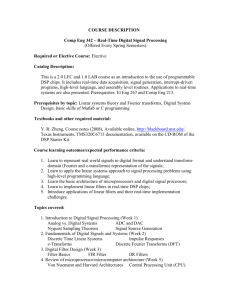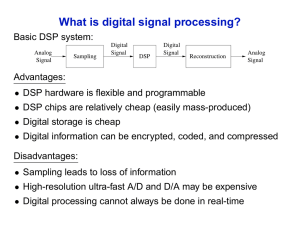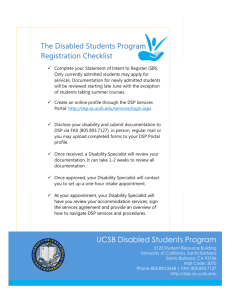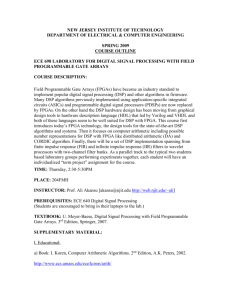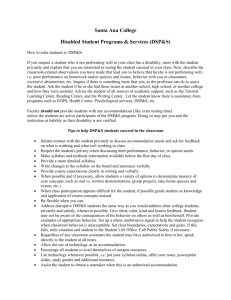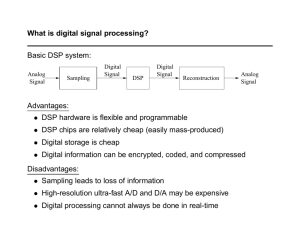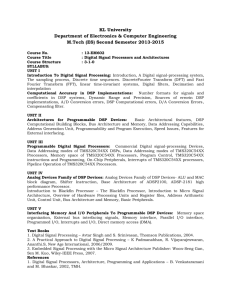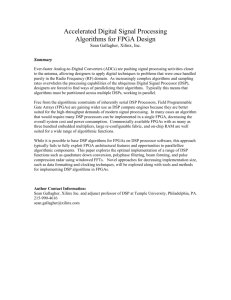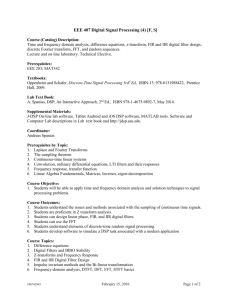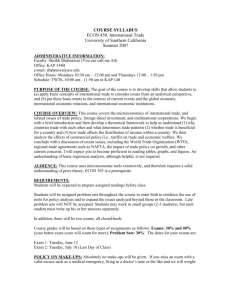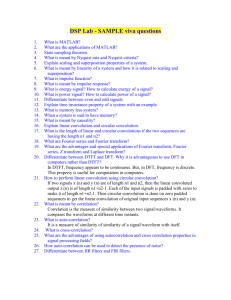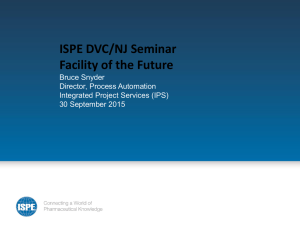ECE 451/L
advertisement
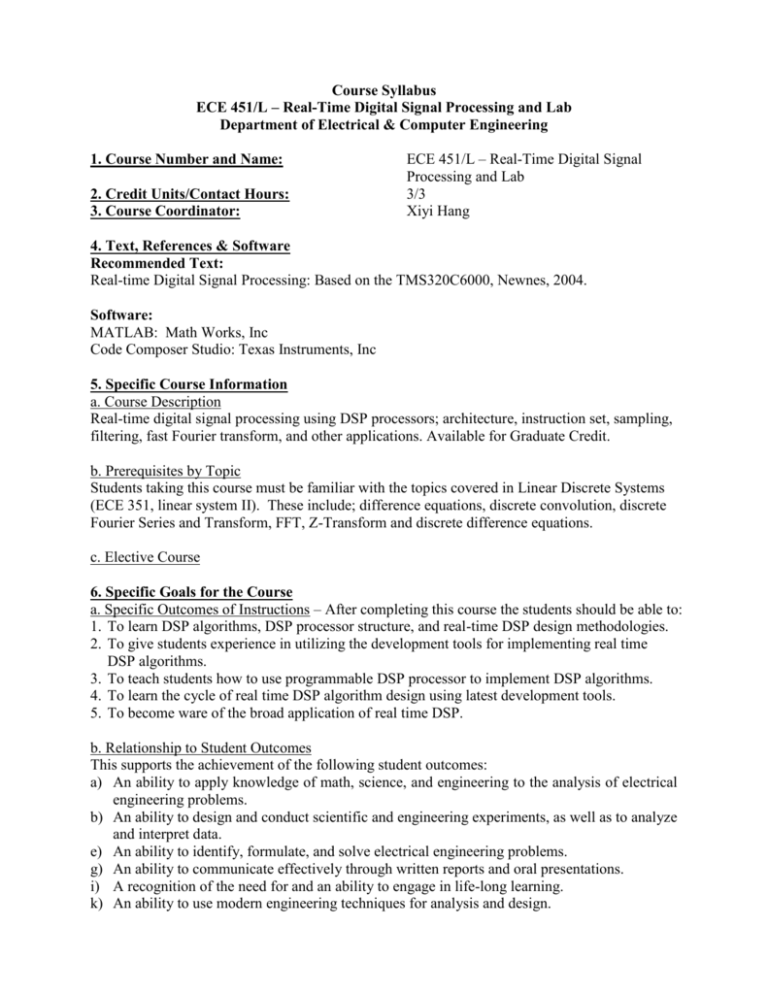
Course Syllabus ECE 451/L – Real-Time Digital Signal Processing and Lab Department of Electrical & Computer Engineering 1. Course Number and Name: 2. Credit Units/Contact Hours: 3. Course Coordinator: ECE 451/L – Real-Time Digital Signal Processing and Lab 3/3 Xiyi Hang 4. Text, References & Software Recommended Text: Real-time Digital Signal Processing: Based on the TMS320C6000, Newnes, 2004. Software: MATLAB: Math Works, Inc Code Composer Studio: Texas Instruments, Inc 5. Specific Course Information a. Course Description Real-time digital signal processing using DSP processors; architecture, instruction set, sampling, filtering, fast Fourier transform, and other applications. Available for Graduate Credit. b. Prerequisites by Topic Students taking this course must be familiar with the topics covered in Linear Discrete Systems (ECE 351, linear system II). These include; difference equations, discrete convolution, discrete Fourier Series and Transform, FFT, Z-Transform and discrete difference equations. c. Elective Course 6. Specific Goals for the Course a. Specific Outcomes of Instructions – After completing this course the students should be able to: 1. To learn DSP algorithms, DSP processor structure, and real-time DSP design methodologies. 2. To give students experience in utilizing the development tools for implementing real time DSP algorithms. 3. To teach students how to use programmable DSP processor to implement DSP algorithms. 4. To learn the cycle of real time DSP algorithm design using latest development tools. 5. To become ware of the broad application of real time DSP. b. Relationship to Student Outcomes This supports the achievement of the following student outcomes: a) An ability to apply knowledge of math, science, and engineering to the analysis of electrical engineering problems. b) An ability to design and conduct scientific and engineering experiments, as well as to analyze and interpret data. e) An ability to identify, formulate, and solve electrical engineering problems. g) An ability to communicate effectively through written reports and oral presentations. i) A recognition of the need for and an ability to engage in life-long learning. k) An ability to use modern engineering techniques for analysis and design. m) An ability to analyze and design complex devices and/or systems containing hardware and/or software components. n) Knowledge of math including differential equations, linear algebra, complex variables and discrete math. 7. Topics Covered/Course Outline: 1. Review of C programming 2. Introduction to development tool 3. Introduction to DSP processor structure and instruction set 4. FIR filter design and implementation 5. IIR filter design and implementation 6. FFT implementation and its applications 7. Practical DSP applications Prepared by: Xiyi Hang, Professor of Electrical and Computer Engineering, November, 2011 Ali Amini, Professor of Electrical and Computer Engineering, March 2013
